
What Are The Different Types Of Caffeine?
What is Caffeine?
Caffeine is a naturally occurring chemical stimulant. In its pure form, caffeine is a bitter, white, crystalline powder. Caffeine can be consumed in many different ways, both synthetically created or naturally occurring in seeds, leaves, nuts and berries. Caffeine is used to create everyday staples such as coffee, tea and energy drinks or supplements. Aside from the natural sources, synthetic caffeine is also commonly used in many familiar foods and beverages and even extends as far as water, chewing gum and personal hygiene products (3,8,9). There are no chemical differences between natural and synthetic caffeine, in fact, they are almost indistinguishable. The primary difference is that natural caffeine is extracted from plant products, whereas synthetic caffeine is produced from urea and chloroacetic acid. The end product and the effect that these two types of caffeine have on the body are also incredibly similar (8). Caffeine blocks adenosine; the neurotransmitter in the brain that makes us feel sleepy. Whilst caffeine is often given a bad rep for its effects on sleep and anxiety; there are countless health benefits to be gained by consuming caffeine. These include increasing focus, boosting memory and helping to power through a tough workout (1, 2). These benefits are particularly enhanced when paired with the amino acid L-theanine, which counteracts the negative effects of caffeine (10). Read more about the incredible benefits this pair have to offer in our article here. Here, we delve a little deeper into the different types of caffeine from both natural and synthetic sources, starting with the most famous of the bunch…
Caffeine in Coffee 
Coffee is one of the first things that springs to mind when we think of caffeine – and that’s with good reason! Coffee is the world’s most popular drink with an estimated two billion cups drank daily (3)! But caffeine isn’t just a one trick pony and coffee aside; caffeine is also found in over sixty other plants including cocoa beans and tea leaves! The average cup of Joe contains between 100mg-140mg of caffeine. Many people assume that decaffeinated coffee contains zero caffeine; however, this isn’t the case as decaf coffee can contain up to 12mg of caffeine (6,7).
Caffeine in Tea
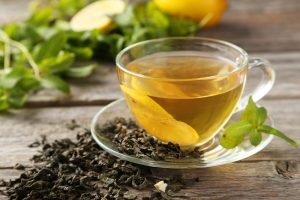 Many people believe that tea contains lower levels of caffeine and is less stimulating than coffee, however this is not the case. The average cup of tea contains around 75mg of caffeine. Green tea is slightly lower at 60mg per cup, followed by white tea with 55mg a cup. If you’re looking for a low caffeine tea, opt for Oolong tea which contains just 35mg (6,7). As briefly mentioned earlier, the amino acid L-theanine works incredibly well in partnership with caffeine to counteract the negative stimulating side effects. L-theanine is found in tea leaves so a cup of Rosy Lea gives you a double dose of health benefits (10).
Many people believe that tea contains lower levels of caffeine and is less stimulating than coffee, however this is not the case. The average cup of tea contains around 75mg of caffeine. Green tea is slightly lower at 60mg per cup, followed by white tea with 55mg a cup. If you’re looking for a low caffeine tea, opt for Oolong tea which contains just 35mg (6,7). As briefly mentioned earlier, the amino acid L-theanine works incredibly well in partnership with caffeine to counteract the negative stimulating side effects. L-theanine is found in tea leaves so a cup of Rosy Lea gives you a double dose of health benefits (10).
Caffeine in Energy Drinks
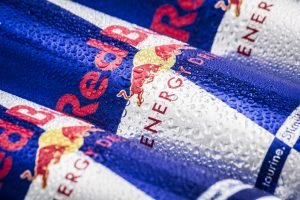 Caffeine isn’t the only stimulating ingredient used in energy drinks, although it is usually one of the main ingredients in terms of ratio. Energy drinks are usually created using a combination of caffeine, other plant-based stimulants such as guarana, simple sugars such as glucose, amino acids, herbs such as ginseng, and vitamins (5). These drinks are marketed for improving energy, increasing stamina and athletic performance, improving concentration or even helping with weight loss. Just one can of commercially available energy drink can have anywhere between 80 and 280mg of caffeine depending on the size (7).
Caffeine isn’t the only stimulating ingredient used in energy drinks, although it is usually one of the main ingredients in terms of ratio. Energy drinks are usually created using a combination of caffeine, other plant-based stimulants such as guarana, simple sugars such as glucose, amino acids, herbs such as ginseng, and vitamins (5). These drinks are marketed for improving energy, increasing stamina and athletic performance, improving concentration or even helping with weight loss. Just one can of commercially available energy drink can have anywhere between 80 and 280mg of caffeine depending on the size (7).
Caffeine in Chocolate
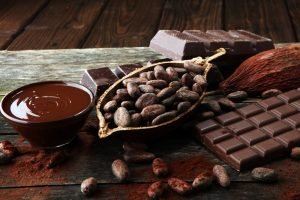 Dark chocolate contains a small amount of caffeine along with other natural substances which may help to improve mood and provide a boost of energy. Caffeine is found in cocoa solids but not in cocoa butter, so you can therefore establish the amount of caffeine in chocolate by the cocoa content and darkness. The higher the percentage of cocoa solids in the chocolate, the more caffeine it will contain per gram. Dark chocolate has around 25mg of caffeine in a 50g serving. Milk chocolate is significantly lower with less than 10mg of caffeine per 50g serving. As white chocolate is made using only cocoa butter and zero cocoa solids, it contains no caffeine at all (4,6).
Dark chocolate contains a small amount of caffeine along with other natural substances which may help to improve mood and provide a boost of energy. Caffeine is found in cocoa solids but not in cocoa butter, so you can therefore establish the amount of caffeine in chocolate by the cocoa content and darkness. The higher the percentage of cocoa solids in the chocolate, the more caffeine it will contain per gram. Dark chocolate has around 25mg of caffeine in a 50g serving. Milk chocolate is significantly lower with less than 10mg of caffeine per 50g serving. As white chocolate is made using only cocoa butter and zero cocoa solids, it contains no caffeine at all (4,6).
Caffeine in Supplements
Some people just don’t like the taste of coffee or tea, unless it’s filled with heaps of sugar. This could make caffeine pills a preferable choice by providing an energy boost without adding calories. There are some caffeine pills that contain natural caffeine, extracted during the brewing process; others may contain synthetic caffeine. Caffeine supplements are the purest form of caffeine as they are not diluted or mixed with other chemicals. The exact measurements in capsules and tablets can help to regulate your intake of caffeine. This makes caffeine easy to control and maintain a regular intake. This being said, most caffeine supplements average between 100mg-200mg doses; so, if you like your coffee, tea or other caffeine-infused beverages/food, it is worth considering how much caffeine you consume from other sources and perhaps drop a brew or two from your daily intake before taking a caffeine supplement.
The Take Home:
Caffeine consumption of up to 400 milligrams daily is considered safe for most people, but bear in mind that this amount is comprised of your entire caffeine intake for the day. However, pregnant or breastfeeding mothers and those with pre-existing heart conditions should err on the side of caution, with lower recommended daily intakes ranging from 200 to 300mg. So, providing you stay within the guideline amounts of daily caffeine, you should reap the benefits without any negative effects (11). Many people claim they can’t function without their morning coffee and rely on it to kick-start their day. While the effect of caffeine is much milder than that of illegal stimulating drugs; it does have the ability to cause addiction for someone who relies on caffeine as a large part of their diet and lifestyle (12). By being aware of the caffeine content in different drinks and foods, you can easily keep an eye on your intake to avoid caffeine dependence and ensure you stay within the healthy guidelines stated above Caffeine is not as unhealthy as it has past been portrayed; quite the opposite in fact, with ample evidence to show the many health benefits of consuming caffeine. So, your daily cup of tea or coffee is a simple and enjoyable way to get a boost of energy along with an abundance of other health benefits!
Reference List:
- Astorino, Todd & Rohmann, Riana & Firth, Kelli. (2008). Effect of caffeine ingestion on one-repetition maximum muscular strength. European journal of applied physiology. 102. 127-32. 10.1007/s00421-007-0557-x.
- Borota, Daniel & Murray, Elizabeth & Keceli, Gizem & Chang, Allen & Watabe, Joseph & Ly, Maria & Toscano, John & Yassa, Michael. (2014). Corrigendum: Post-study caffeine administration enhances memory consolidation in humans. Nature neuroscience. 17. 10.1038/nn.3623.
- Britishcoffeeassociation.org. (2019). Coffee Facts | British Coffee Association. [online] Available at: https://www.britishcoffeeassociation.org/coffee-in-the-uk/coffee-facts
- Heckman, Melanie & Weil, Jorge & Mejia, Elvira. (2010). Caffeine (1, 3, 7-trimethylxanthine) in Foods: A Comprehensive Review on Consumption, Functionality, Safety, and Regulatory Matters. Journal of food science. 75. R77-87. 10.1111/j.1750-3841.2010.01561.x.
- Lee, J. I. M. S. O. N. (2009, July 9). Energy drinks vs. sports drinks: know thy difference. Retrieved from http://speedendurance.com/2009/07/09/energy-drinks-vs-sports-drinks-know-thy-difference/
- MacCance, R. and Widdowson, E. (2015). McCance and Widdowson’s the composition of foods. Cambridge: Royal Soc. of Chemistry.
- nhs.uk. (2019). Should I limit caffeine during pregnancy? [online] Available at: https://www.nhs.uk/common-health-questions/pregnancy/should-i-limit-caffeine-during-pregnancy/ [Accessed 30 Sep. 2019].
- Patocka, Jiri & Navratilova, Zdenka & Krejcar, Ondrej & Kuca, Kamil. (2019). Coffee, Caffeine And Cognition: A Benefit or Disadvantage?. Letters in Drug Design & Discovery. 16. 10.2174/1570180816666190620142158.
- Gilbert, R. (1985). Caffeine consumption. Progress in clinical and biological research. 158. 185-213.
- Rogers, Peter & Smith, Jessica & Heatherley, Susan & Pleydell-Pearce, C. (2008). Rogers PJ, Smith JE, Heatherley SV, Pleydell-Pearce CW. Time for tea: mood, blood pressure and cognitive performance effects of caffeine and theanine administered alone and together. Psychopharmacology 195: 569-577. Psychopharmacology. 195. 569-77. 10.1007/s00213-007-0938-1.
- Sanders, L. (2019). EFSA Spotlight: What is a ‘Moderate Amount’ of Caffeine, Anyway? [online] IFIC Foundation. Available at: https://foodinsight.org/efsa-spotlight-what-is-a-moderate-amount-of-caffeine-anyway/.
- Uddin, Md. Sahab & Sufian, Mohammad Abu & Hossain, Md & Kabir, Md. Tanvir & Islam, Md. Tanjir & Rahman, Md & Rafe, Md. Rajdoula. (2017). Neuropsychological Effects of Caffeine: Is Caffeine Addictive?. Journal of Psychology & Psychotherapy. 7. 1-12. 10.4172/2161-0487.1000295.




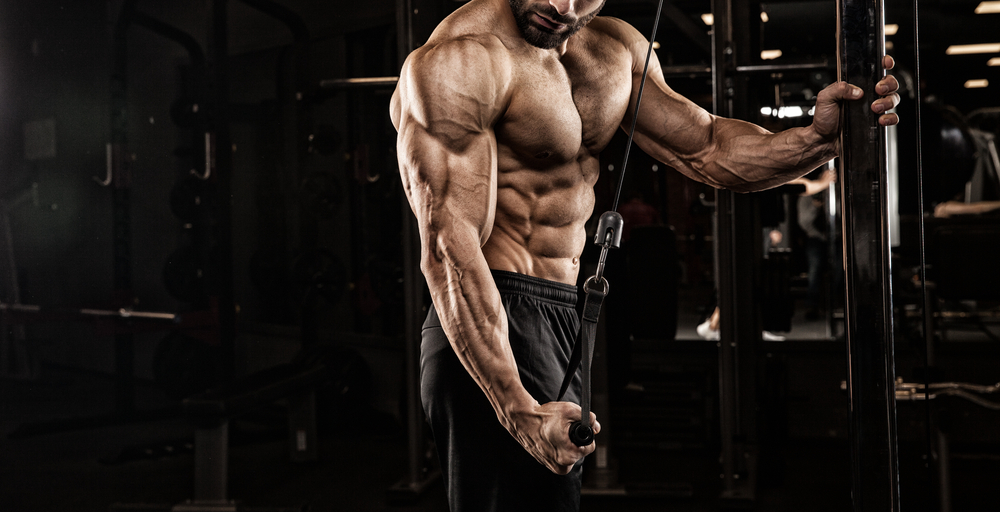
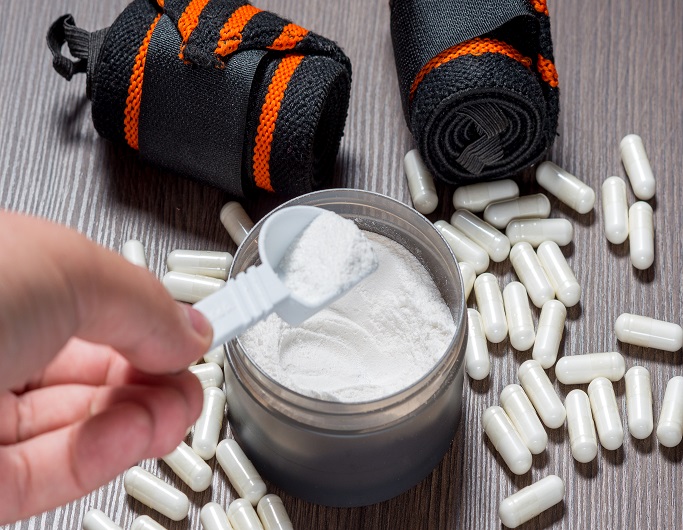
No Comments yet!